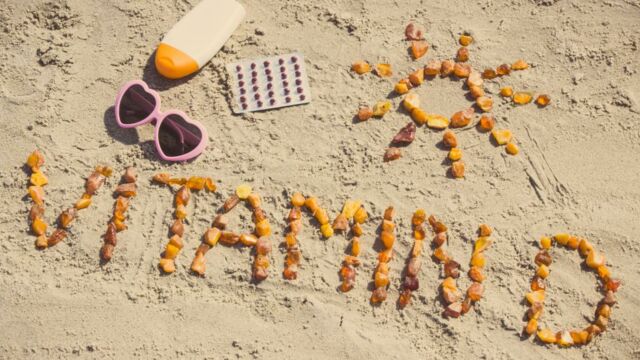While you might think that you have managed to top off your Vitamin D for the year this summer, a National Diet and Nutrition Survey shows that 1 in 6 adults in the UK are not getting enough of it.
Discover our latest podcast
This is especially true in the winter and fall months. Another survey conducted by British Nutrition Foundationfound that shockingly, almost half of the British adults surveyed were unaware of the fact that the government recommends vitamin D supplements for people during these darker months with less sunlight.
According to the National Health Service (NHS), vitamin D supplements should be considered by people who do not get enough vitamin D and children under ages 1-4 and babies who are consuming below 500ml of infant formula a day.
Why is low vitamin D harmful to you?
Vitamin D deficiency is now a problem all over the world and it can have far-reaching consequences on our bodies, health and moods. It is particularly true if you do not get enough sun in your daily life.

According to the NHS, vitamin D regulates our body’s calcium and phosphate levels. Appropriate levels of these must be maintained for keeping our bones, teeth and muscles healthy. Vitamin D deficiency can lead to bone diseases. It can cause bone deformities like rickets in children and bone pain in adults.
The NHS recommends 10 micrograms of vitamin D a day for children 1 year and up. Adults should get a minimum of 10 micrograms of vitamin D a day. Babies under 1 year of age need 8.5 to 10 micrograms of vitamin D a day.
What can you do to get enough vitamin D?
As mentioned above, taking supplements is one of the easiest ways recommended by the NHS and the government, to top up your vitamin D.

Of course, the major source of vitamin D is getting enough sun. But according to experts at Johns Hopkins Medicine, it is essential to balance skin safety and sun exposure since too much sun can cause skin damage and even, cancer.
The NHS has recommended several foods which are good sources of vitamin D. These are oily fish (like salmon), red meat, liver, egg yolks, fortified foods as well as cow’s milk. Adding these as part of your diet can help you get your requisite vitamin D.
Read more:
⋙ Vitamin D deficiency: Your lower back could be giving you a sign
⋙ Vitamin B12 deficiency: Having cold extremities could be a sign of deficiency















